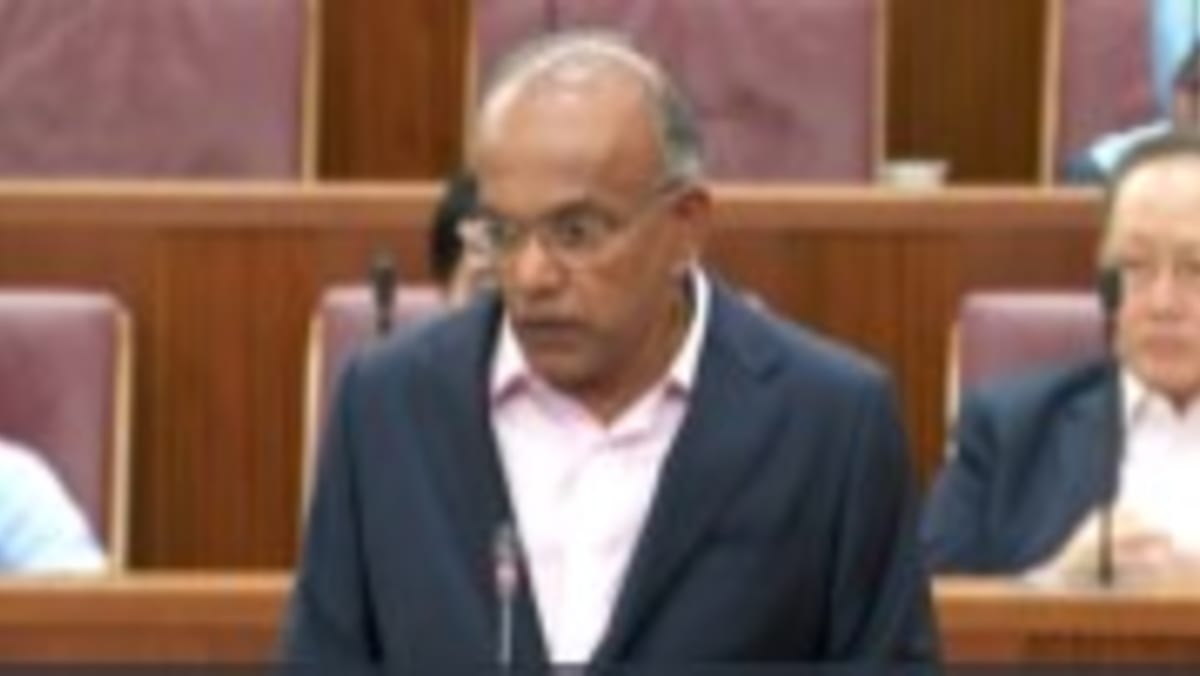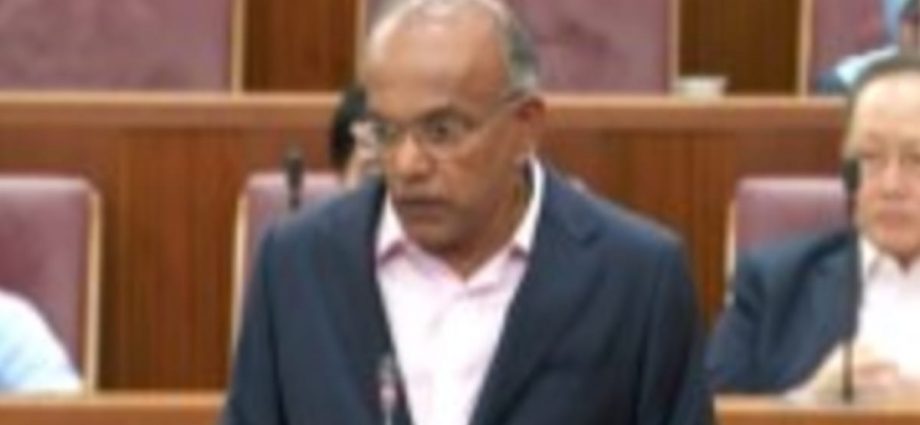
DEFENSIVE POLICING?
On Tuesday, Mr Shanmugam said one of MHA’s concerns was that the High Court judgment would lead to defensive policing – where police officers on the ground do the least possible to avoid being over-analysed.
He told the House that while the police have to be held to the highest standards, MHA has to ensure that the analysis of officers’ ground judgments is “reasonable and fair”.
Because police officers often have to make split-second decisions based on limited information, it would not be realistic to critique their every move without the benefit of hindsight or being on the ground, Mr Shanmugam said.
He added: “The officers must be given sufficient latitude to make swift ground assessments and decisions, so long as they have acted in good faith. An environment in which police actions are unfairly critiqued will inevitably undermine public trust in the police.
“It will also lead to defensive policing, where the ground officers will try to do the least possible. They fear that everything they do will be over-analysed and picked apart unfairly.”
Mr Shanmugam said this can have a “detrimental effect” on Singapore’s safety and security. Unfair characterisations of the police would also eventually cause the public to view them as the enemy, he added.
“This has happened in other countries,” he added “We have, so far, avoided that situation, and we have to be careful to avoid that outcome.”
“HIGH LEVELS OF TRUST”
Mr Shanmugam cited another concern – that the court decision may adversely impact the police’s ability to detain individuals under the Mental Health (Care and Treatment) Act, which Mr Mah was apprehended under.
Mr Shanmugam told the House that Singapore’s level of safety and security is underpinned by high levels of trust between the Government and the public, as well as a system of policing that is “highly trusted and effective”.
The framework that is in place to ensure police officers behave in accordance with the law has also helped to maintain standards and trust, Mr Shanmugam said.
Over the past three years, an average of 78 police officers have been subject to disciplinary proceedings annually. About 10 officers have been charged with criminal offences in court every year during that period, Mr Shanmugam added.
He pointed out three layers of checks, the first being the police themselves.
“There is a process to investigate any abuse of power, and we ourselves take action against errant officers. People know that we will do so,” he said.
He noted that officers on patrol duty wear body-worn cameras, which means their actions can be assessed from the footage.
Mr Shanmugam said that MHA can also convene an independent review panel, and has done so in the past.
The panel – which provides an independent assessment on whether internal investigations were fair and thorough – comprises former judges, former senior public officers, and others “with significant standing in society”.
The courts then form the third layer of safeguards, Mr Shanmugam added. “If criminal offences are potentially disclosed, we recommend court prosecution and let the courts deal with the matter.”
AGC TO ADVISE ON POTENTIAL APPEAL
He then turned to Mr Mah’s case, saying that MHA has concerns about the court judgment.
The judge had found that Mr Mah’s unusual behaviour did not qualify as symptoms of a mental disorder, and that the arresting officer took a dislike to him and made up observations about him.
Mr Shanmugam said: “We are looking closely at the court’s reasons for reaching these conclusions. Police tell me that they take a different view.”
The police will look at these points together with the Attorney-General’s Chambers (AGC), and the AGC will advise on whether to appeal against the judgment, Mr Shanmugam added.
“In deciding what to do, we have to bear in mind that decisions in individual cases can have a much larger and unintended effect of negatively impacting how officers react in future to situations,” he said.
“We are studying the court’s comments carefully. We will then decide whether to file an application for permission to appeal, or make legislative changes as necessary to address any gaps that may have arisen between the policy intent and the position in law.
“If we reach the conclusion that the court’s findings are, in fact, reasonable and correct, then we will have to internalise that and make sure the key points are made clear to our officers, so that they understand the situation better,” Mr Shanmugam added.
He noted that the sense among officers at the moment is one of concern – on what liability may befall them, and for actions that they take in discharging their duties.
Mr Shanmugam also said that the Government usually refrains from commenting on court decisions that may be appealed against, unless it is in the public interest to do so.
“The Administration of Justice (Protection) Act provides for statements on pending court proceedings to be made in such situations. In our view, this is one such case,” he added.

